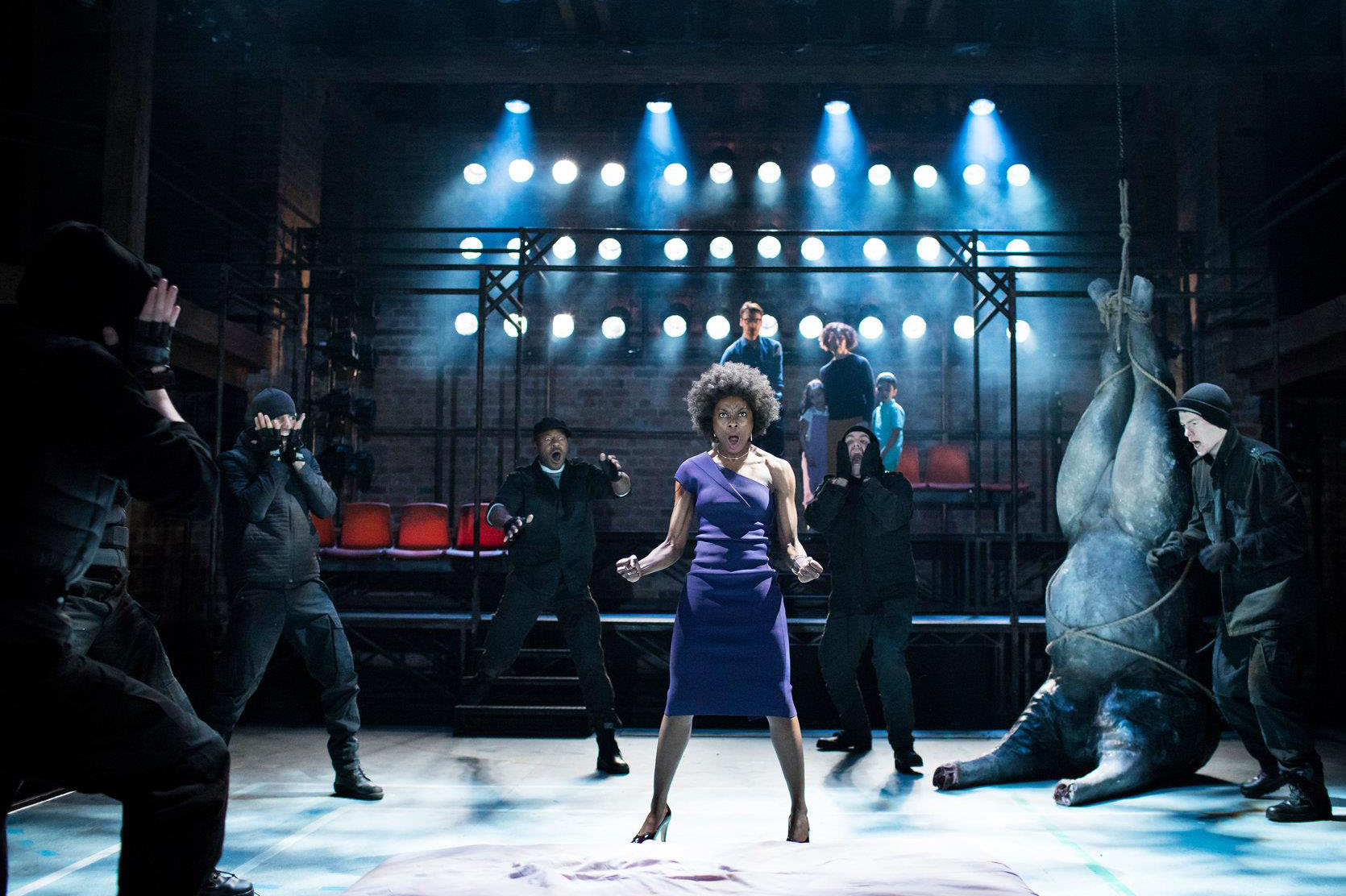
Webster’s revenger tragedy of 1623 outscores any cult movie for horror: with its enormous body count, cruel debasement of women, and mental torture that takes your breath away. It also rates highly for poetic imagery and profound observation. In Maria Aberg’s otherwise worthwhile modern dress production, much of the latter is washed away with added macho behaviour and the largest pool of fake blood in stage history.
Text cuts include the removal of political commentary, from a plot based upon a true Italian happening. A young, widowed duchess marries in secret against the wishes of her brothers – a bishop and a cardinal. They see her ‘offence’ as magnified beyond endurance, because her husband is her steward, a mere commoner. Discovering the truth via Bosola – a spy and assassin, they order the murder of the countess and her children. Then Bosola, denied payment, penitent and determined to punish his masters, begins the trail of death that claims all those involved.
Naomi Dawson’s bare set takes up elements of an abattoir, a sports facility and bedlam, complete with a violent male squad performing frightening dances, menacing other characters, or slowly exercising whilst looking lasciviously on. The symbolism is as heavy as the huge corpse of a bull, the duchess struggles to drag onstage before the written action commences.
There is however merit in this modern dress production. The Duchess has to woo her husband because of the difference in their status. And Joan Iyiola gifts her the natural vitality and humour of modern relationships, albeit that facing death she produces spirited defiance, not transcendent integrity and innocence,
As her insignificant husband, Paul Woodson quietly brings out an idealistic decency rare in this version of Milan. Nicolas Tennant’s Basola is presented as a dour, shabby villain, but nevertheless conveys something of his complexity, as scholar and soldier, murderer and moraliser.
As the Brothers Evil, Alexander Cobb as Duke Ferdinand feeds in the seeds of his incipient growing madness with measured artistry. Unusually, Webster’s hints that his obsessive control of his sister is sexual are not taken up. But there’s compelling depravity in spades from Chris New as the cardinal, sexually violating his mistress Julia because he can, callously poisoning her when she becomes a potential threat, humanised only by a death wound and an imminent meeting with his maker. In contrast Aretha Ayeh as Julia is all touching, flawed humanity.
That pool of blood – assumedly from the production’s virtual abattoir, appears with the Duchess’ strangling, and remains with location changes, for each new victim to bathe and writhe in. Any sense of horror dies with it, as does representation of the playwright’s belief that with death inevitable, what matters is living with integrity. .
Webster, just on the evidence of an original text bristling with outrage at male malevolence, would have be an enthusiastic supporter of Me Too. ★★★☆☆ Derek Briggs 12th April 2018

